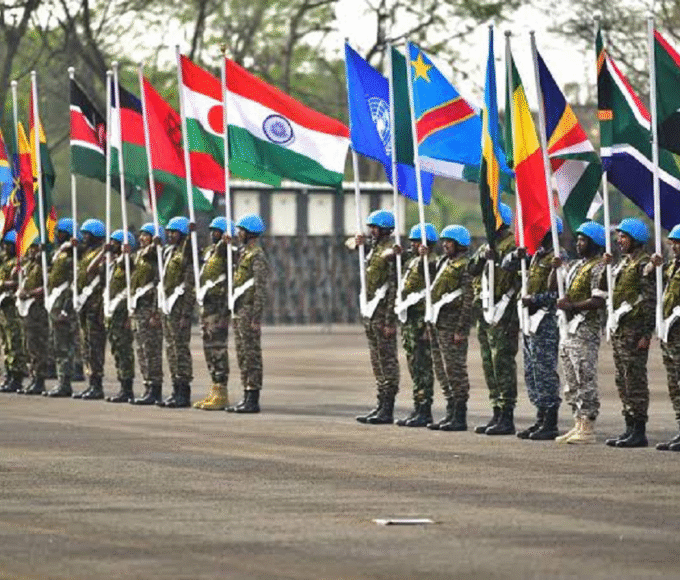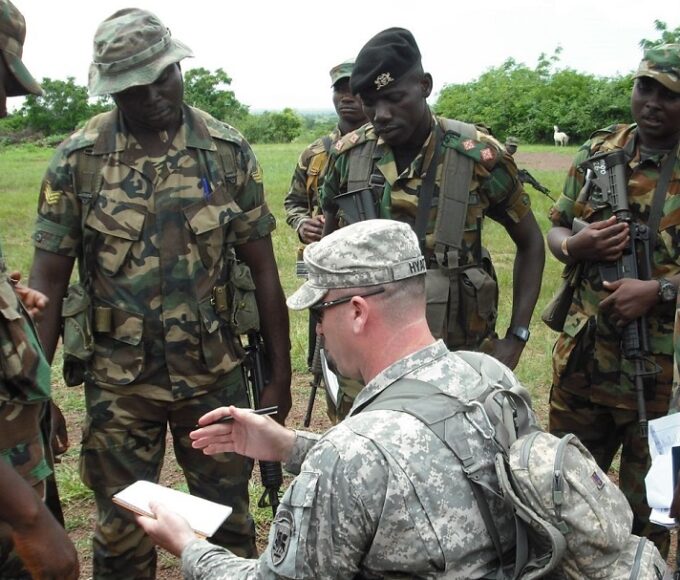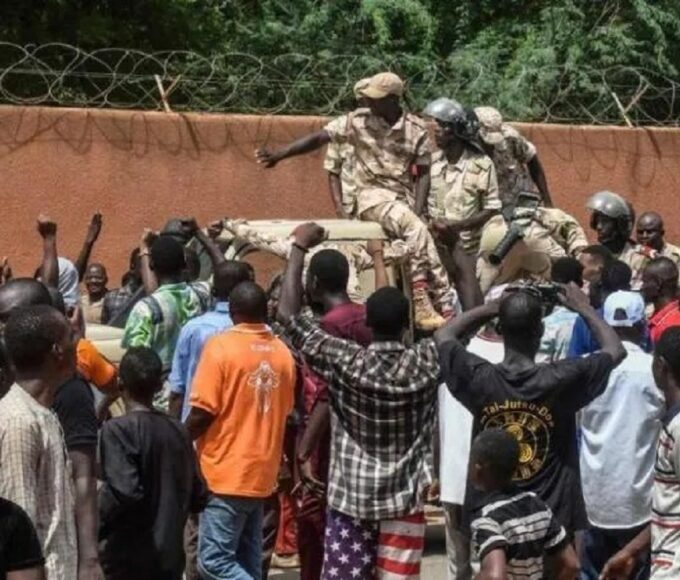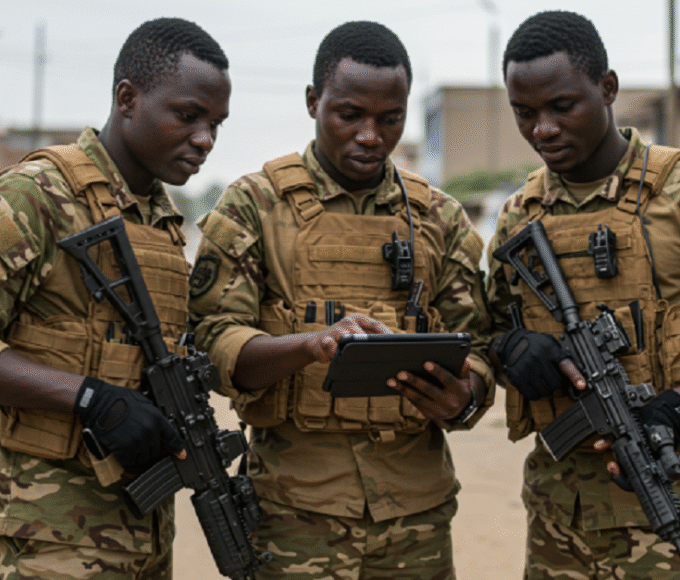Historic Military Campaigns That Redefined African Borders
Today, as Africa faces new border tensions driven by climate migration, terrorism, and transnational crime, the lessons of these historic military campaigns remain vital.

Africa’s borders, as they stand today, are often seen as the legacy of European cartography—a network of straight lines drawn in colonial capitals with little regard for ethnic, linguistic, or geographic realities. But while the Berlin Conference of 1884–85 etched political boundaries onto the continent, it was Africa’s own military campaigns—led by liberation movements, state armies, and insurgent forces—that redefined their meaning, enforcement, and legitimacy.
From Ethiopia’s battlefield defiance of European imperialism to the Eritrean war of independence, from Nigeria’s brutal civil conflict to post-apartheid interventions, Africa’s territorial map has been shaped as much by the rifle as by the ruler.
The Battle of Adwa (1896): A Boundary Against Empire
Long before the 20th-century liberation wars, Africa’s first major military assertion of sovereignty came from Ethiopia. Facing Italy’s colonial ambitions, Emperor Menelik II’s forces crushed a well-armed European army at the Battle of Adwa, preserving Ethiopia’s independence and securing its borders for generations.
- Estimated troop strength: 100,000 Ethiopian troops vs. 17,000 Italian forces
- Casualties: Over 4,000 Italian soldiers killed or wounded
- Impact: Secured Ethiopia’s status as the only African country (besides Liberia) to avoid colonisation; reinforced national identity and pan-African pride
Nigeria’s Civil War (1967–1970): Internal Borders and National Unity
When the Eastern Region of Nigeria declared itself the independent Republic of Biafra in 1967, it triggered one of Africa’s bloodiest post-independence conflicts.
- Death toll: Estimated 1–3 million, largely from starvation and blockades
- Duration: 30 months of civil war
- Aftermath: The war reaffirmed Nigeria’s internal territorial integrity and established a precedent against secession—one that still guides African Union policy on territorial sovereignty today.
Nigeria’s war also shaped military doctrine across West Africa, showing the utility of air power, psychological operations, and economic blockades in a domestic insurgency.
The Eritrean-Ethiopian War: Borders Carved by Blood
Between 1961 and 1991, Eritrean rebels fought one of the longest armed struggles on the continent—first against Ethiopian imperial rule, then against the Marxist Derg regime. When Eritrea formally gained independence in 1993 following a referendum, it became one of the few African countries to achieve border redrawing through force and diplomacy.
- Duration of war: 30 years
- Post-independence war: Conflict reignited from 1998–2000 over disputed border towns
- Result: The Algiers Agreement (2000) ended the war, though peace only truly resumed with the 2018 rapprochement between PM Abiy Ahmed and President Isaias Afwerki.
Eritrea’s independence was a rare instance of Africa’s post-independence borders being redefined through armed struggle—a move that still sits uneasily with the AU’s non-alteration principle.
The Western Sahara Conflict: A Border in Limbo
Following Spain’s withdrawal from Western Sahara in 1975, a decades-long conflict erupted between Morocco and the Polisario Front, which seeks independence for the Sahrawi people.
- UN-designated status: Non-self-governing territory
- Military dynamic: Polisario established the Sahrawi Arab Democratic Republic, backed by Algeria; Morocco constructed a vast sand berm to assert control
- Current status: A frozen conflict with intermittent flare-ups, stalled referendums, and contested control along the Moroccan Western Sahara Wall, one of the world’s longest defensive structures (~2,700 km)
Despite international pressure, the border status remains unresolved—a modern case of military force dictating the boundaries of diplomacy.
The Uganda-Tanzania War (1978–1979): Intervention Across Borders
When Ugandan dictator Idi Amin invaded Tanzania’s Kagera Salient in 1978, President Julius Nyerere responded with an all-out war that culminated in the overthrow of Amin and a temporary Tanzanian occupation of Uganda.
- Significance: First time a post-colonial African state overthrew another’s government through direct military action
- Legacy: Redefined the boundaries of regional intervention and established the precedent for justified cross-border intervention on humanitarian and regional security grounds
The war also sparked a wider debate about sovereignty versus responsibility—a concept that underpins modern African peacekeeping frameworks.
Military Campaigns That Held the Line
Not all border-shaping conflicts were about conquest or secession. Many were about preserving boundaries and enforcing recognition.
- The Sand War (1963) between Algeria and Morocco over the Tindouf region highlighted the fragility of colonial-era demarcations
- The Bakassi Peninsula dispute between Nigeria and Cameroon (resolved by the ICJ in 2002) saw both sides fortify borders and engage in skirmishes until international mediation prevailed
- Sudan’s civil wars, especially in the South, eventually led to the creation of South Sudan in 2011—Africa’s newest nation, born through referendum after decades of war
These conflicts show that in Africa, border legitimacy is often established not just on paper, but on the battlefield—and, ultimately, at the negotiating table.
Borders as Battlefields and Barometers
While colonialism may have drawn Africa’s borders, military campaigns—liberation wars, civil conflicts, interstate clashes—have shaped their meaning. Some borders hardened, others dissolved, and a few re-emerged.
Today, as Africa faces new border tensions driven by climate migration, terrorism, and transnational crime, the lessons of these historic military campaigns remain vital. They remind us that borders are not just lines on maps—they are lived realities, often enforced or contested through violence and sacrifice.
In a continent where the legitimacy of many borders remains contested in hearts if not in law, Africa’s military history is inseparable from the map that defines its nations.
Snapshot: Military Campaigns and Border Shifts in Africa
- First major anti-colonial victory: Battle of Adwa, 1896 (Ethiopia)
- Most prolonged armed border redefinition: Eritrean War of Independence (1961–1991)
- Largest loss of life in a border-linked civil war: Nigerian Civil War (1967–1970)
- Ongoing border disputes linked to past wars: Western Sahara, Ethiopia-Sudan, DR Congo-Rwanda
- African countries created or redefined through military struggle: Eritrea, South Sudan, Zimbabwe, Namibia
Recent Posts
Categories
- Air & Aerospace17
- Border Security15
- Civil Security6
- Civil Wars4
- Crisis5
- Cyber Security8
- Defense24
- Diplomacy19
- Entrepreneurship1
- Events5
- Global Security Watch6
- Industry8
- Land & Army9
- Leadership & Training5
- Military Aviation7
- Military History27
- Military Speeches1
- More1
- Naval & Maritime9
- Policies1
- Resources2
- Security12
- Special Forces2
- Systems And Technology9
- Tech6
- Uncategorized6
- UNSC1
- Veterans7
- Women in Defence9
Related Articles
INDIA’S GROWING MILITARY PARTNERSHIPS WITH AFRICA
India’s engagement with Africa is undergoing a quiet but powerful transformation. What...
ByKing Richard Igimoh, Group Editor ALOOctober 14, 2025EVOLVING HORIZONS: TRAINING THE AFRICAN SOLDIER IN A CHANGING LANDSCAPE
The training of African soldiers has undergone a profound transformation in recent...
ByKing Richard Igimoh, Group Editor ALOOctober 2, 2025COLD WAR AFRICA: PROXY WARS AND THEIR IMPACT
The Cold War in Africa, spanning from the late 1940s to the...
ByKing Richard Igimoh, Group Editor ALOSeptember 26, 2025AI AND AFRICA’S MILITARY INTELLIGENCE: PROMISE AND PERIL IN A TRANSFORMING SECURITY LANDSCAPE
Africa’s military landscape is entering a new chapter, shaped by the rapid...
ByKing Richard Igimoh, Group Editor ALOSeptember 22, 2025













